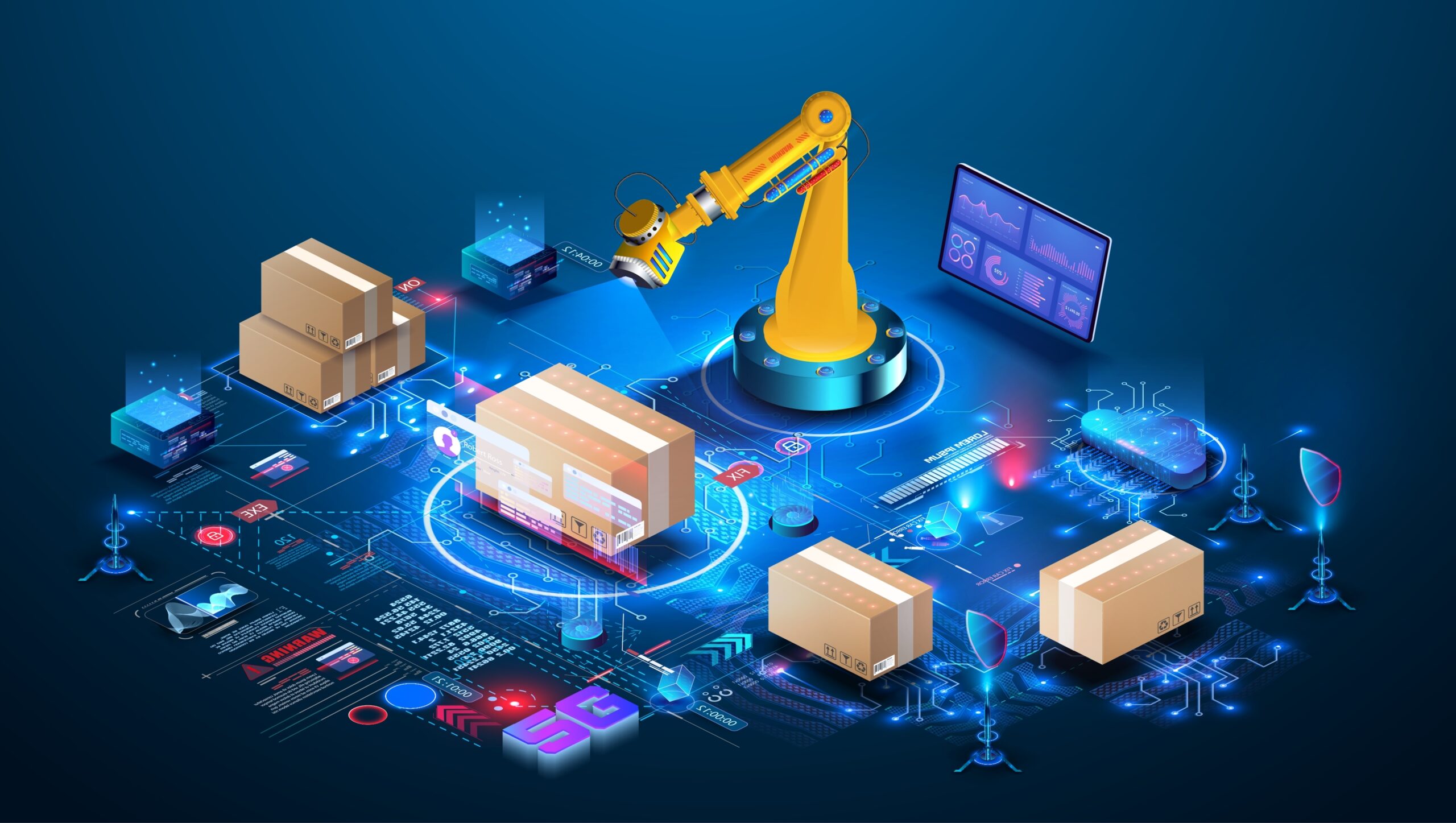AI and Machine Learning in Supply Chain
The modern supply chain is evolving rapidly, with businesses leveraging technology to enhance efficiency, optimize logistics, and improve decision-making.

How AI and Machine Learning Are Transforming Supply Chain Management
The modern supply chain is evolving rapidly, with businesses leveraging technology to enhance efficiency, optimize logistics, and improve decision-making. AI and Machine Learning (ML) are at the forefront of this transformation, revolutionizing supply chain management by automating processes, predicting demand, and minimizing risks. Companies that utilize Machine Learning Development Services and partner with an AI software development company can significantly improve their supply chain operations, reducing costs and increasing productivity. In this blog, we will explore how AI and ML are transforming supply chain management and why businesses should adopt these technologies.
The Role of AI and Machine Learning in Supply Chain Management:
AI and ML are reshaping the way businesses manage their supply chains. These technologies help organizations:
- Predict Demand Accurately: AI-powered analytics assess historical data and market trends to forecast demand.
- Automate Logistics and Warehousing: Robotics and AI-driven automation optimize inventory management and warehouse operations.
- Enhance Supplier Management: AI evaluates supplier performance, reducing risks and improving procurement efficiency.
- Improve Decision-Making: ML algorithms provide real-time insights into supply chain performance and potential disruptions.
- Reduce Costs and Minimize Waste: AI optimizes supply chain workflows, eliminating inefficiencies and reducing overhead costs.
By adopting Machine Learning Development Services, businesses can leverage AI-driven solutions to enhance operational efficiency and gain a competitive edge.
Key Ways AI and Machine Learning Are Transforming Supply Chain Management:
1. AI-Driven Demand Forecasting
AI and ML improve demand forecasting accuracy, helping businesses optimize inventory and prevent stock shortages or overstocking.
How AI Helps:
- AI-powered predictive analytics analyze customer behavior and market trends.
- Machine learning models forecast future demand fluctuations based on historical data.
- AI-driven insights allow businesses to adjust supply chain strategies in real time.
Business Benefits:
- Reduces excess inventory and lowers storage costs.
- Prevents stock shortages by ensuring demand-supply balance.
- Enhances responsiveness to market changes and consumer demands.
Companies working with an AI software development company can implement customized AI-driven demand forecasting models to improve inventory planning and sales strategies.
2. AI in Warehouse and Inventory Management
AI-powered automation is revolutionizing warehouse management, improving inventory accuracy and streamlining logistics.
How AI Helps:
- AI-driven robotics automate warehouse operations, from sorting to packaging.
- ML algorithms analyze stock levels and optimize inventory replenishment.
- AI-powered IoT sensors track goods in real time, reducing errors and losses.
Business Benefits:
- Enhances warehouse productivity by automating repetitive tasks.
- Reduces inventory mismanagement and waste.
- Increases order fulfillment speed and accuracy.
Through Machine Learning Development Services, businesses can integrate AI-powered warehouse management systems for improved efficiency and cost reduction.
3. AI-Powered Supply Chain Optimization
AI and ML optimize supply chain networks by analyzing real-time data and improving route planning, logistics, and supplier performance.
How AI Helps:
- AI-driven logistics optimization minimizes delivery delays and fuel consumption.
- Machine learning models identify bottlenecks and suggest workflow improvements.
- AI-powered supplier analytics assess vendor reliability and performance.
Business Benefits:
- Reduces transportation costs and delivery times.
- Enhances collaboration with suppliers and partners.
- Improves operational resilience and agility in supply chain management.
Companies partnering with an AI software development company can implement AI-driven logistics optimization tools to enhance supply chain performance and sustainability.
4. AI in Risk Management and Supply Chain Resilience
AI-powered risk management tools enable businesses to anticipate and mitigate supply chain disruptions.
How AI Helps:
- AI detects and predicts potential risks, such as supplier failures and geopolitical disruptions.
- ML algorithms analyze real-time data to suggest proactive risk mitigation strategies.
- AI-driven fraud detection ensures supply chain compliance and security.
Business Benefits:
- Minimizes supply chain disruptions by predicting and addressing risks early.
- Enhances compliance with industry regulations and safety standards.
- Improves operational stability and crisis management.
By leveraging Machine Learning Development Services, businesses can implement AI-powered risk management frameworks to ensure supply chain resilience.
5. AI-Enhanced Customer Experience and Order Fulfillment
AI-driven automation improves customer satisfaction by optimizing order processing, delivery speed, and supply chain transparency.
How AI Helps:
- AI chatbots provide real-time order tracking and customer support.
- Machine learning optimizes delivery schedules based on customer preferences.
- AI-powered analytics personalize recommendations and enhance customer experience.
Business Benefits:
- Increases customer satisfaction with faster and more accurate order fulfillment.
- Enhances transparency by providing real-time supply chain visibility.
- Reduces order processing errors and improves overall service quality.
By working with an AI software development company, businesses can integrate AI-driven customer service and logistics solutions to improve supply chain efficiency and customer engagement.
How Businesses Can Implement AI and Machine Learning in Supply Chain Management:
- Partner with an AI Software Development Company: Collaborate with AI experts to develop and deploy intelligent supply chain solutions.
- Utilize Machine Learning Development Services: Leverage ML-driven demand forecasting, logistics optimization, and risk management tools.
- Automate Warehousing and Logistics: Implement AI-powered robotics and IoT sensors for inventory tracking and automation.
- Enhance Supplier and Risk Management: Use AI-driven analytics to assess supplier performance and mitigate supply chain risks.
- Monitor and Optimize AI-Driven Solutions: Continuously refine AI models to improve efficiency and supply chain agility.
Conclusion:
AI and Machine Learning are revolutionizing supply chain management by enhancing demand forecasting, automating logistics, optimizing inventory, and improving risk management. Businesses that invest in Machine Learning Development Services and collaborate with an AI software development company can transform their supply chain operations, reducing costs and increasing efficiency.
As AI-powered supply chains become the industry standard, organizations that embrace these innovations will gain a competitive edge, improving both operational performance and customer satisfaction. Now is the time for businesses to integrate AI-driven solutions and future-proof their supply chain management strategies.
What's Your Reaction?


















.jpg)
